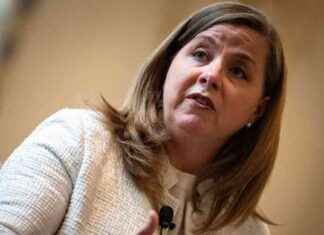The European Central Bank (ECB) announced today that they have decided to keep their key policy rates unchanged in a unanimous decision. They reiterated their stance of not committing to a specific rate path and emphasized that they will continue to assess the appropriate level and duration of restriction on a meeting-by-meeting and data-dependent basis.
Unlike the April meeting, there was no clear indication of a new policy rate cut being considered for the upcoming September meeting. ECB President Lagarde remained cautious during the Q&A session with the press, highlighting the central bank’s concern about the strengthening of underlying core inflation, particularly in the services sector. Headline inflation is expected to remain above the target well into next year.
The market reaction to the ECB meeting was relatively muted, with daily changes on the German yield curve ranging between -1 basis point (2-year) and +2 basis points (30-year). Despite the lack of commitment to a rate cut in September, money markets are still anticipating quarterly rate cuts in September, December, March, and June. The euro traded slightly softer at EUR/USD 1.0919, while EUR/GBP was at 0.8410.
In other news, Statistics Poland released a series of data for June, showing a mixed picture for the economy. Employment in the enterprise sector remained unchanged from May but declined by 0.4% year-on-year. However, wages and salaries in the sector saw a significant increase of 1.8% month-on-month, driven by bonuses, awards, and overtime pays. Producer price inflation remained subdued at 0.1% month-on-month, with prices 6.1% lower year-on-year.
Industrial production in June rebounded by 3.2% month-on-month after a decline in May, bringing year-on-year growth back into positive territory at 0.3%. Despite the positive data, the National Bank of Poland is expected to maintain its policy rate unchanged for the rest of the year and possibly into 2025, focusing on the impact of administered price hikes and potential demand pressures due to strong wage growth.
The Chinese Communist Party issued a statement following the ‘Third plenum’ meeting, emphasizing continuity in policy aims to support new productive forces, expand domestic demand, address risks in the real estate sector, and reform taxation and the financial system. A more detailed plan is expected to be released soon.
Overall, the financial markets are closely monitoring these developments, with the DXY (trade-weighted dollar) attempting to avoid a drop below the neckline of a double top formation, USD/CNY showing no change after the Third Plenum meeting, EUR/PLN bouncing off its strongest levels YTD, and the Vix volatility index indicating a potential correction on stock markets. It’s essential to consider these factors when making investment decisions, as market conditions can change rapidly.








